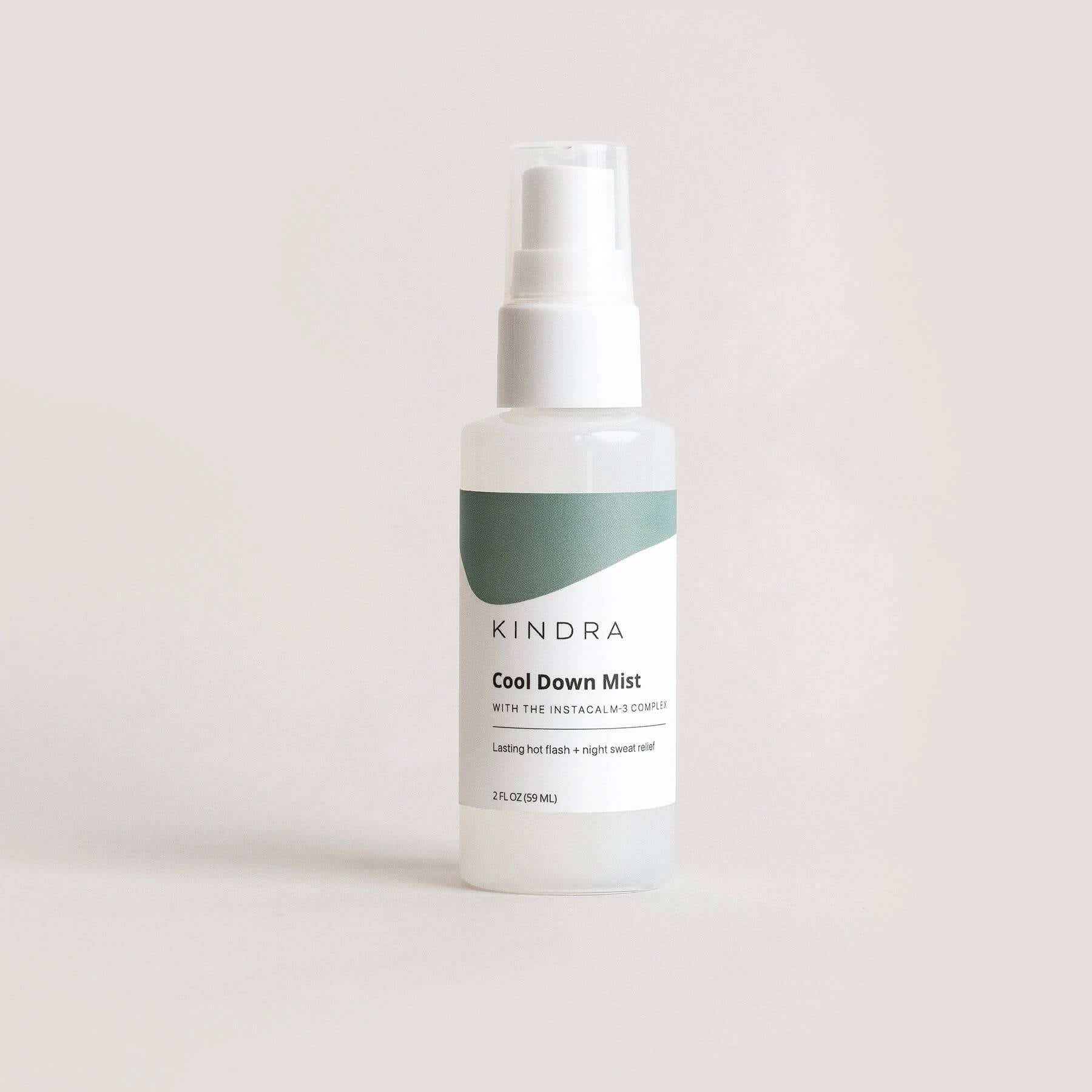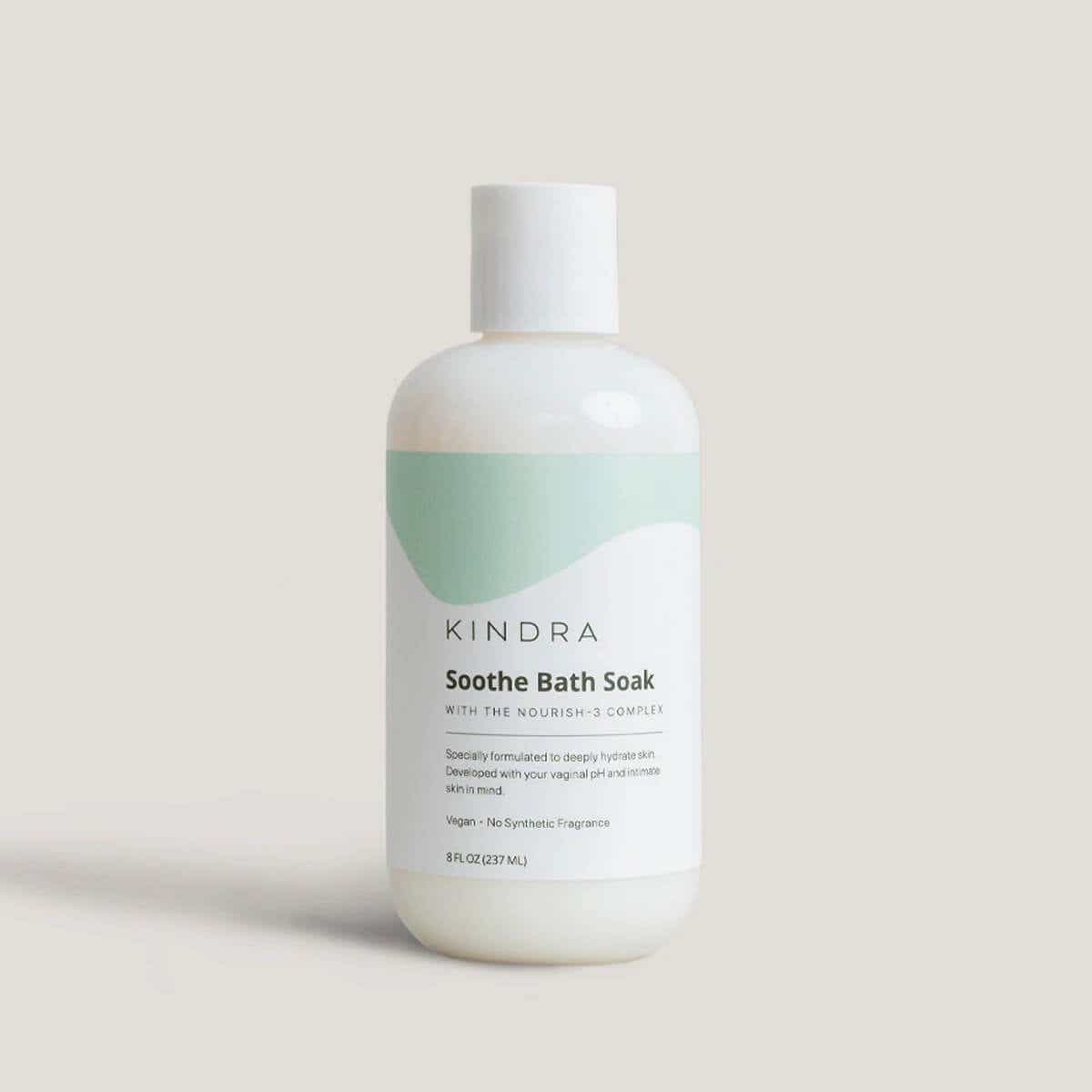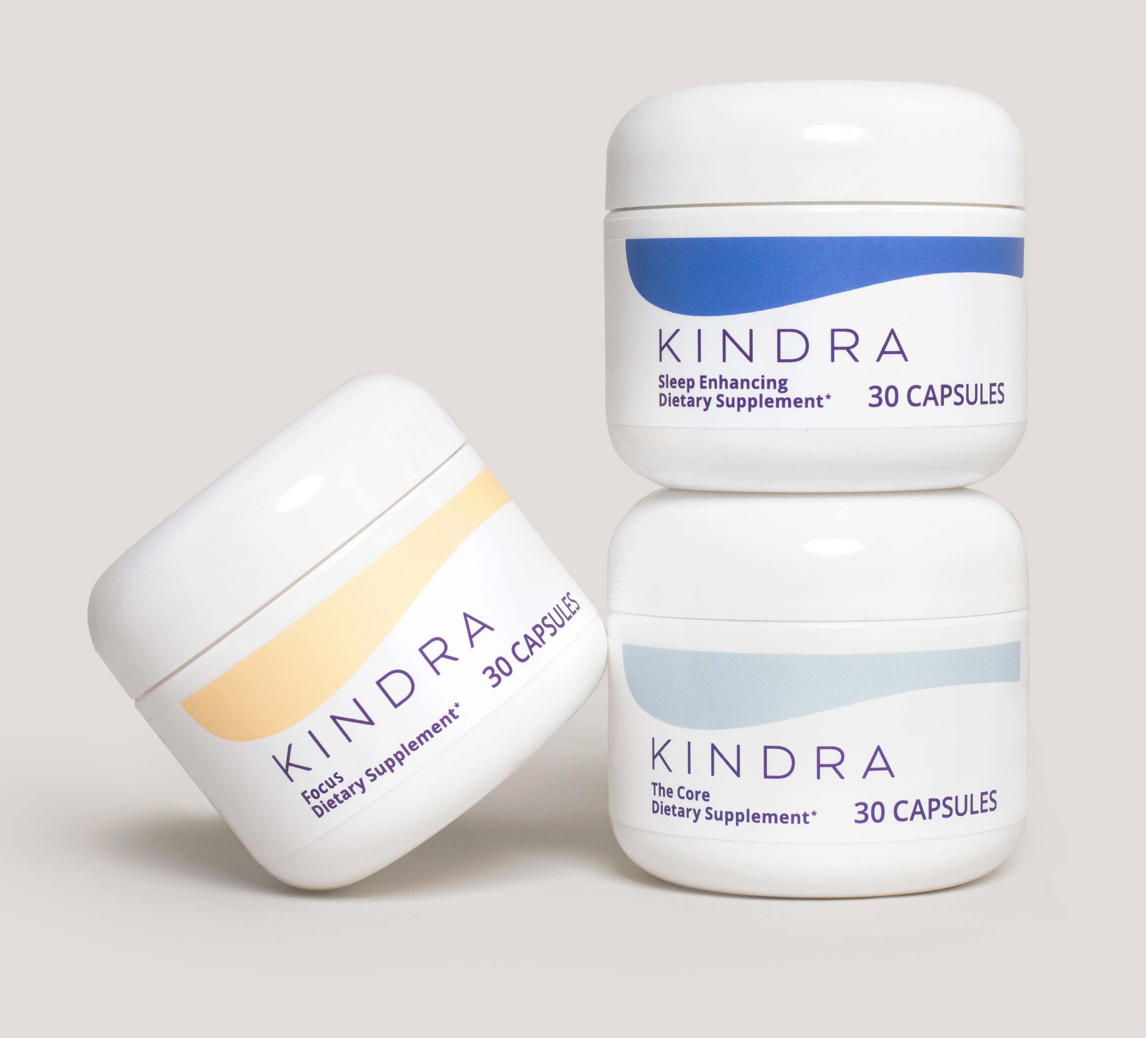Everyone’s journey through menopause looks different, which means there’s no one-size-fits-all approach for treating the discomfort that sometimes comes along with it. As your body’s estrogen levels decline over time, you might start experiencing hot flashes and sleepless nights, or become moody and irritable. Or, perhaps you’re dealing with a mix of it all. (How fun.)
Regardless of your experience with menopause, managing this new life stage — and the changes that come with it — can be tough to navigate. If you’re looking for a non-prescription way to find relief, look no further: A time-tested, specific form of therapy can help you manage the shifts your body is experiencing during this tricky transition.
Cognitive behavioral therapy (or CBT) is a form of psychotherapy that helps you assess your thoughts, feelings, and behaviors to figure out where you can make meaningful changes to live more productively. And research shows that it’s highly effective in helping peri/menopausal women find relief from common symptoms like hot flashes, depression, and insomnia.
Where to start? You can find a trained CBT therapist for one-on-one guidance if your symptoms are disruptive for more than two weeks. There are also self-help books you can consult from home, like The Cognitive Behavioral Workbook for Menopause, that teach tools like how to cope with feeling frustrated from a lack of sleep, or deal with the onset of anxiety from hot flashes.
Sheryl M. Green, Ph.D. is an associate professor at McMaster University, a clinical health psychologist at St. Joseph’s Healthcare Hamilton, and a co-author of The Cognitive Behavioral Workbook for Menopause. She’s led research in this field for more than 15 years. “Some people cannot or choose not to take medication to treat their menopause symptoms,” says Green. “So what’s an effective alternative? Through CBT, you’re able to bring awareness to your thoughts, what’s triggering you, and what reactions you’re having. That puts you in the driver’s seat to say, ‘I can see this is not working for me, so I’m going to target this area using CBT.’”
Combining a regular CBT practice with other types of self-care (think calming baths, journaling, and meditation) can optimize results. Kindra (a KCM favorite) is a go-to for plant-powered, science-backed products that are formulated specifically for people going through menopause. Their bestsellers (like the Cooling Mist, Hot Flash Knockout, and Soothe Bath Soak) are proven to be effective in helping concerns like the severity of hot flashes, mood swings, and night sweats, and they’re an essential part of any self-care practice during this life stage. “Having a routine, a rhythm, and a schedule at any time in life helps human beings thrive, and menopause is no exception,” says Green.
We asked Green to share how you can use CBT to address common menopause concerns like hot flashes and mood swings and to explain why combining mindful therapy practices with a regular self-care routine is the ultimate recipe for a healthier and happier lifestyle.
How CBT can help you find relief from hot flashes
The goal of CBT isn’t to necessarily eliminate all your hot flashes (“That’s not realistic,” says Green), but instead to use mindfulness to bring attention to and target five aspects of your hot flash: the duration (how long it hangs around), the level of interference (how much it disrupts your life), the severity (or how intense it feels), the level of distress (a common emotion with hot flashes), and the frequency (how often you’re having one).
For example, if you get a hot flash right before a big presentation at work, instead of ruminating over how terrible you feel and how everyone’s going to notice, CBT teaches you how to shift your mindset so the hot flash isn’t so debilitating. “A more helpful way of thinking would be, ‘OK, I’m having a hot flash. This isn’t ideal. Why don’t I take my jacket off and take a couple of swigs from my water bottle to experience a little coolness?’ So you’re still having a hot flash, but you’re able to realize there’s a more helpful way of thinking and adjusting your behavior,” says Green.
That doesn’t mean deluding yourself into thinking the hot flash is a fun-filled experience.“That’s a nice idea, but it doesn’t work,’ says Green. “That kind of positive thinking is just as distorted as the initial thoughts.” What does work is being more realistic about your situation and finding proven solutions, like spritzing on a cooling mist that you keep by your desk, (Kindra’s Cool Down Mist provides quick and lasting relief during hot flashes), or taking a few minutes to do deep-breathing exercises to cool down before you get back to what you were doing.
How to manage restless sleep and night sweats using CBT
Everyone wants the bliss of a night of deep sleep. But during menopause, night sweats can make those uninterrupted Zzzs feel like trying to doze off in a sauna. “When you’re waking up in the middle of the night soaking wet, a lot of times people will have a reaction that contributes to the problem of not being able to get back to sleep,” says Green.
If you wake up thinking, Here we go again, throw your covers off, change your pajamas, and get back into bed frustrated that tomorrow’s already ruined before it begins, those negative reactions are contributing to your lack of sleep, says Green.
So how can you find some peace? “From a behavioral perspective, set a pair of pajamas right next to your bed so if you do have to change, they’re right there and it’s less disruptive. And keep a damp cloth next to your bed so you can reach over and cool yourself down if you have a night sweat,” says Green. (You can also keep a cooling mist, like Kindra’s, next to your bed, or place a bag of frozen peas beneath your pillow before you fall asleep, and in the middle of the night, turn the pillow over to experience immediate coolness.)
“From a cognitive perspective, change the thought, ‘This night sweat is horrible,’ to ‘Here it is again: I’m just going to change my pajamas and put that cold cloth on my face for a moment. Then I’m going back to bed and doing deep belly breathing to get myself back to sleep. I know how to get through this’,” says Green. “That’s a much more helpful approach and way of thinking than the former.”
For added support, Kindra’s Sleep Enhancing Supplement may help you fall asleep (and stay asleep) thanks to ingredients like stress-reducing Ashwagandha, clinically-studied Pycnogenol® for relieving menopause symptoms, and just enough low-dose Melatonin to help promote restful sleep, and a cool, calm you.
How to manage irritability and mood swings using CBT
Schedule-wise, women typically have tremendously full plates by the time they start menopause. “A lot of women at this developmental timeline are in the peak of their career, working full-time, and have a heavy workload. At the same time, they’re in the home stretch of childrearing and tend to be looking after aged parents or loved ones,” says Green. “All of those stressors can contribute to more irritability and potentially depressive symptoms, not to mention a host of bodily changes, because our metabolism also slows down.”
“We target mood by examining our thoughts,” says Green. Similar to the approach for hot flashes and night sweats, Green says, “CBT examines your thoughts associated with feeling down in the dumps or irritable and looks for any problematic thinking patterns. Then we try to change them to be more accepting and appreciative, as opposed to critical and destructive using cognitive-restructuring techniques.”
Why mixing CBT with self-care is a powerful combination
“Even if for 10 or 15 minutes here and there during the day, we have to refill our tank to be able to continue to give our best,” says Green. Finding the right activities — ones that help you slow down and find joy — will give you a noticeable boost.
Drawing a warm bath using a calming bath soak before bed is one way to feel good — especially as you wind down for the day. “As long as self-care activities are consciously woven into our lifestyle, it’s going to help to maintain the gains we’re receiving from all of that initial hard work from CBT.”
Self-Care Essentials from Kindra to Have on Hand During Menopause
Cool Down Mist
Kindra
Find relief from the onset of a hot flash or night sweat with a refreshing face and body mist that’ll cool you down quickly. Keep this one — which is full of skin-loving ingredients like aloe, cucumber, and hyaluronic acid — near your bedside, in your purse, or by your desk. It’s formulated with gentle ingredients that are clinically proven to provide an immediate cooling sensation that lasts for hours. Plus, it’s made with sensitive skin in mind. 100 percent of women reported an improvement in the severity of their hot flashes and night sweats, while 93 percent reported their skin felt cool immediately upon application.
Soothe Bath Soak
Kindra
Looking to unwind? Indulge in a relaxing bath before bed while pampering yourself to this soothing bath soak. It’s designed to nourish dryness and it’s made with sensitive skin and your vaginal pH in mind. Kindra’s soak is also infused with calming chamomile, which can help ease your mind before you doze off. 87 percent of women reported feeling calmed and relaxed after use. And if you’re sensitive to additives, no worries: Kindra formulated this bath soak without any preservatives or synthetic fragrances. Plus, 87 percent of women reported feeling calmed and relaxed after use.
The Hot Flash Knockout
Kindra
You can find additional relief from hot flashes (in addition to regularly practicing CBT) by taking Kindra’s best-selling Hot Flash Knockout supplement set. It’s formulated with a potent natural plant extract duo and can help cut down on those sweaty temperature surges. Nearly 70 percent of women reported marked improvement in hot flashes and brain fog after just four weeks. And with this trio, you’ll also be able to try out their Focus and Sleep Enhancing supplement, which aims to cut down on brain fog and deliver a better rest.
The information provided on this site isn’t intended as medical advice, and shouldn’t replace professional medical treatment. Consult your doctor with any serious health concerns.















